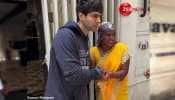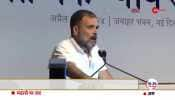Matsumoto: A generation ago, Dr. Akira Sugenoya performed lifesaving cancer surgery on more than 100 children after the 1986 Chernobyl catastrophe. Today, as mayor of a central Japanese city, he`s trying to avoid a repeat of his own history.
Beginning in April, parents living in the shadow of the Fukushima nuclear disaster will be able to send their children about 300 kilometers away to his city, Matsumoto, to go to school. The city will pay 1.4 million yen (USD 140,000) a year for a six-bedroom house and caretakers; parents won`t pay tuition but will cover expenses such as utilities and meals.
"If my fears turn out to be unfounded, nothing would be better news," Sugenoya said in a recent interview with The Associated Press at Matsumoto city hall. "But if they become reality, then there is little time before it`s too late."
Sugenoya has been critical of the government`s response to the three meltdowns at the Fukushima Dai-ichi nuclear plant, which exploded after the March 2011 tsunami and is still releasing radiation into the air and sea.
Decommissioning will take decades, and experts disagree over how much the disaster will affect the health of area residents.
The single sickness confirmed by the International Atomic Energy Agency to have been caused by low-dose radiation from Chernobyl is thyroid cancer, which if properly treated with surgery is rarely fatal. Sugenoya, a thyroid specialist, volunteered to work in Belarus, close to the Ukraine power plant, in 1991 after hearing about thousands of cases of thyroid cancer there.
Five years later, he quit his job in Japan at a prestigious hospital and returned for another five and a half years. He has set up a donation fund for Chernobyl victims and regularly brings doctors from Belarus into Japan for training.
It`s unclear how the radiation leaks near Fukushima Dai-ichi compare with those from Chernobyl.
Measuring exposure at the individual level involves complex calculations to account for the daily intake of food and water, and can vary greatly.
The Japanese government has detected 44 confirmed and suspected cases of thyroid cancer among 217,000 youngsters, 18 and under, checked in Fukushima prefecture (state). Thyroid cancer among children is generally rare, estimated at only one in a million. The link to radiation is still inconclusive, and extensive testing of Fukushima children could account for the higher numbers.
Children are far more sensitive to radiation-caused diseases than adults because their bodies are developing, but their bodies can bounce back and heal from the damage of radiation. Sugenoya said that in areas of Belarus that are close to Chernobyl, children are periodically sent away from radiated areas.















